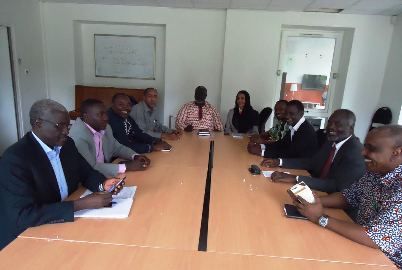Sudan rebel alliance seeks to unify opposition forces within two months
July 25, 2014 (KHARTOUM) – Rebel alliance the Sudan Revolutionary Front (SRF) said it would work towards unifying opposition forces, stressing the move is a necessary measure to overthrow the regime or reach a comprehensive peaceful solution to end war and bring about democratic change in the country.

The statement added the SRF would make its utmost efforts to achieve “this vital mission within two months in order to allow Sudanese people make the necessary change”.
The move comes 18 months after a first attempt in January 2013, where the SRF groups and opposition parties signed the ‘New Dawn’ charter in the Ugandan capital, Kampala, where the participants agreed on the goal of changing the regime.
However very quickly they disagreed over whether they should use political or military means to bring this change. Also they diverged on the role of religion in politics.
The National Umma Party (NUP), Popular Congress Party (PCP) and Sudanese Communist Party (SCP) later appeared to distance themselves from the agreement saying they were rushed into signing and voiced objections over some of its clauses.
Referring to the national dialogue initiative launched in January 2014 by president Omer Hassan al-Bashir on the, the SRF groups reiterated its rejection for partial solution and emphasised that this process should lead to achieve true political change in Sudan.
Last April, the SRF proposed a roadmap to achieve a comprehensive solution to end war in the southern and western parts of the country and ensure democratic transition in Sudan.
The proposal provided to hold one peace process to negotiate peace in Darfur region, South Kordofan and Blue Nile states. Following what, an inclusive peace process should be held with the participation of all political forces and civil society groups.
In Khartoum, the ruling party and several oppositions parties on Friday finalised a framework agreement for the national dialogue and called on the rebel groups and opposition parties that refused the process to join them.
The opposition National Umma Party (NUP) decided last May to suspend its participation in the national dialogue process to protest the arrest of its leader al-Sadiq al-Mahdi as he had accused the Rapid Support Forces (RSF) militia of committing atrocities against civilians in Darfur.
After al-Mahdi release in June, the NUP stressed on the need to review the national dialogue process and associate the “historical” political parties in an African Union-led process to achieve peace in the Two Areas and Darfur.
Al-Mahdi also called to include the rebel groups in the political dialogue stressing that no democratic change can be achieved without peace.
The SRF disclosed that the five-day meeting received a letter from the United States special envoy to Sudan and South Sudan, Donald Booth, without elaborating on its content.
It also said the rebel leadership council met with delegates from the US and the European Union (EU), noting that several issues were discussed in the meetings including humanitarian issues, human rights, comprehensive peaceful solution, and dialogue among all parties to the Sudanese crisis.
A joint delegation comprising of members of the SRF and opposition parties met EU legislators on 16 July in Strasbourg, France, where they called for Europe to exert more pressure on Khartoum to achieve a comprehensive peaceful settlement and a genuine process for national dialogue leading to democratic transformation.
The rebel groups reaffirmed that search for peaceful solution doesn’t mean it abandoned its call for overthrowing the regime, underscoring that any agreement with the Sudanese government should lead to ending the wars and establishing a democratic regime on the basis of the principle of citizenship without discrimination.
The statement pointed the meeting was held for the first time in France because SRF leaders have been present in Europe for meetings with various organisations and institutions on top of which is the European Parliament.
The SRF leaders are expected to hold meetings with some leaders of the opposition parties who are currently present in Europe to discuss ways to reach a consensus between the military and political forces on the democratic change.
Paris meeting was held with the participation of its chairman, Malik Agar, the deputy chairman for political affairs, Abdel-Wahid al-Nour, deputy chairman for foreign affairs, Gibril Ibrahim, the foreign relations official, Yasser Arman, media affairs official, Al-Tom Hago, and administrative affairs official, Nasr al-Din al-Hadi al-Mahdi. Zinab Kabashi of the Beja Congress also attended the meeting.
The SRF deputy chairman, Minni Arku Minnawi, didn’t attend the meeting due to logistical reasons. He was represented by the humanitarian affairs official, Trayo Ahmed Ali.
(ST)
